Elana Baurer (she/they) had everything prepared for the birth of her first child. Her parents and her partner’s parents were both nearby, and her sister had flown in from California to be at the birth. Even their synagogue had made a meal train for them.
“I really thought I was pretty much set in everything I would need, and I still had the most intense and challenging postpartum experience,” Baurer tells GO.
That experience, which included two months of undiagnosed postpartum depression, made clear to Baurer how much she would have benefited from working with a doula. Distinct from midwives, birth and postpartum doulas are trained specifically in providing physical, emotional, and informational support to birthing people. Stopping short of clinical care, which is managed by medical practitioners like OB-GYNs and certified nurse midwives, being a doula is, by definition and in practice, a supporting role. As Baurer puts it, it’s about having someone there who’s “invested in you personally and isn’t just focused on the baby, but is really there to nurture you as a full person.”
That was a form of support she found herself in particular need of as she navigated what, as a queer cis woman partnered with a cis man, parenthood meant for her queer identity.
“Becoming a parent was a huge identity transformation because it basically felt like I would forever be read as straight,” they recall. “It felt like a loss to my identity… like, ‘Oh, now I’m just a mom.’ I lost so many parts of my identity, really, but one of them that felt hard especially was figuring out my queer identity in this relationship and family structure.”
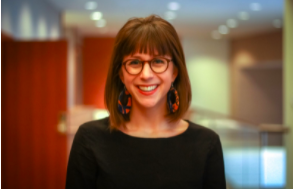
Later, when two of their close friends became pregnant, Baurer decided it was time to learn how to help others navigate this transition. Having trained with Birth Arts International and Birth Advocacy Doula Trainings, they work today as a Philadephlia-based postpartum doula, guiding birthing folks and families through parenthood’s identity transformations as well as its practical considerations, like learning how to chestfeed.
While growing a family is a major life change for anyone, Baurer notes that queer folks are statistically likelier at these times to also be dealing with a number of other factors that can “deepen the emotional isolation and weight of the fourth trimester,” like mental health issues, estrangement from extended family, or a struggle to find gender identity and pronoun-respecting medical providers. Working with a doula adds a layer of support to help buttress folks from those challenges, freeing them to focus on what makes these moments “so tender and so full of possibility.”
“That’s where I really enjoy supporting people, whether they’re growing their family or choosing not to grow their family or experiencing some other kind of identity shift,” she says. And to them, these shifts can feel especially connected to the queer community: “At different points in a queer person’s life, you’re just going to feel more in those liminal spaces, whether that’s in coming out or making other kinds of choices.”
Comfort with liminality is a defining feature of what it means to doula. That’s because much, if not most, of this work is done in spaces where the veil between life and death thins, whether that’s a symbolic shift — the death or birth of an identity, for instance — or a literal one. On the reproductive side, there are doulas who specialize in birth, abortion, adoption, surrogacy and postpartum experiences, and there’s also a growing contingent who focus on end-of-life transitions, like death and bereavement doulas. Many offer an individualized combination of these services; doula work, much like the people behind it, resists being flattened into neat compartments.
Freedom from compartments is one reason Kat Lopez (they/she), a queer, non-binary femme-identifying doula in Tucson, Arizona, gravitated toward full-spectrum doula work.
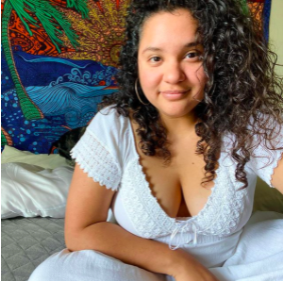
“For me, that means the full spectrum of life,” Lopez says. “I have done a lot of birth and postpartum work and, for whatever reason, am feeling more of a pull to do more abortion and end-of-life support now. I think that’s the really cool thing about identifying as a full-spectrum doula, is that it doesn’t limit me to one thing.”
No matter what type of transition they’re supporting a person through, Lopez believes that providing people with inclusive, supportive care starts with “really taking a moment to be open and curious about all experiences… it’s being more intentional about giving people the mic and actively listening to them.” For a lot of folks, especially those in marginalized communities, that’s an experience medical-industrial spaces haven’t traditionally afforded them. Lopez advocates for clients in these spaces and also serves as a sort of mirror, reminding people of their own power.
“People are like, ‘Oh, you’re so good at this,’ and I’m like, ‘Yeah, but you’re good at this, too.’ I’m here to reflect back the energy that I see in you,” they say. “I feel like that’s what being a doula is all about. It’s understanding that you are an advocate. You are someone there to remind people of their strengths and abilities.”
Helping folks reclaim their power in these spaces means giving them a sense of “partnership and collaboration” in the experience, whether that’s giving birth, ending a pregnancy or some other life change, explained Stephanie Alinsug (they/them/siya), a liberation worker and full-spectrum doula in training in Kingston, New York. Currently 39 weeks pregnant, Alinsug was inspired to become a doula after failing to see anyone like them reflected in their local birth worker options.
“As a queer person, as a non-binary and gender fluid person, and as a person of color… it felt really important to me to potentially fill that gap for birthing people who are looking for that kind of identity and values and support,” they said.
And as a child of immigrants and an abolitionist, those are lenses they apply to their doula work, too. At the center of their approach, they say, is “radically informed consent” — the importance of which was affirmed to them by the way they were treated for postpartum depression after the birth of their first child. The supposed care they received, Alinsug said, closely mimicked incarceration.
“I essentially just hit a breaking point, and the only way for me to receive support was to go to an emergency room psych ward,” they say. “That experience of being involuntarily held in a psych ward in the hospital was hugely traumatic. And so I think about what the more expansive possibilities are that we can offer birthing people and postpartum people… what are those options?”
Receiving medical treatment in a way that’s involuntary and lacks full, informed consent is a staple of many people’s pregnancy and postpartum experiences. And the odds for that only increase if you’re someone whose identity is likelier to be disenfranchised in medical spaces; as Alingsug puts it — and as mortality rates for Black and Indigineous birthing people in the U.S. speak to — it’s especially critical that Black, brown and immigrant people have a say that’s heard in their reproductive journeys.
One crucial place for consent to start? The way physical touch happens in hospitals.
“There’s so much that happens where there just isn’t any informed consent, even if it’s as little as physically maneuvering a birthing person into a different position without telling them you’re going to do it,” Alinsug says. “There’s a whole other way to approach this, which is to say, ‘Look, I’m going to explain to you what I think should happen or what would be supportive right now. Here’s what that’s going to look like, step by step.’”
By ensuring a client is brought into a “shared language and shared knowledge” around what’s happening, they say, doulas can “equip this person to make the decisions they should be empowered to make,” including when it comes to their physical experience of pregnancy.
“There’s this sense of active participation,” they added.
Beyond ensuring empowered consent is present, another way doulas are bettering queer birthing folks’ quality of care is in helping normalize critical language shifts around pregnancy. As Aelis Rivera (she/her/they) — a full-spectrum doula based in North Central Florida, Educational Director for The Educated Mama, and Pregnancy & Postpartum Liaison at Heart 2 Heart Birth Center — puts it: “Not everyone who gives birth is a mother or going to be a mother.”
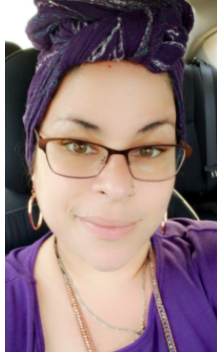
While Rivera, who identifies as queer and is a mom to queer children, sees the importance of these language shifts for the LGBTQIA+ community, they’re quick to stress it benefits people outside the community, too.
“Inclusive language is not only for the queer community,” Rivera says. “You can have someone in the birthing room who’s gifting their child for adoption… or you could have a surrogate who isn’t a mama and doesn’t identify as a mama. Not everyone who you think looks feminine identifies as a feminine being.”
By making assumptions in, say, how a patient is greeted (“How’s mom today?”) or by using incorrect or imprecise language on things like intake and discharge forms, medical providers “miss out on one of the most important opportunities to find out what most empowers the birthing person and their family,” Skye Cardona-Friedman (she/her), a queer birth doula and a Care Advocate with Maven, says.
“When we force individuals to fit into checkboxes, we don’t give them the flexibility to find the words that most empower them — not just what they most identify with,” she says.
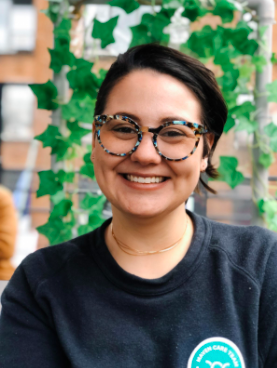
Both on medical forms and in conversation, people should be given space to share how they want to be addressed throughout the birthing process — and a doula can help ensure that’s respected. Terms that Cardona-Friedman has heard used include things like “parent,” “birth support person,” “birthing person” and “life bringer.” So, too, can the language used to describe pregnancy’s bodily processes be made more inclusive: “It may be easier for a client to focus on the hormonal process of labor than the anatomical and physiological processes, or they may want to refer to organs such as the uterus as something less triggering, like ‘womb’ or ‘baby sac,’” she suggests.
More inclusive language isn’t only needed for those giving birth. Language used for non-gestational parents and caregivers is something that can and should be expanded, too. For Alinsug, as they and their masculine-presenting partner prepared to welcome their first child, they encountered a lack of language and resources that elevated their partner as an equal participant in the process.
“There are just no resources for how to do this work collaboratively in a queer household, in a queer relationship and in a liberatory partnership,” they said. “Everything is around ‘new mom this, biology that,’ and then it’s set up sort of in contrast to a masculine body who doesn’t have any physical connection to this baby that’s now here… it’s this conflict between two binary bodies, and that is just not the case for me and not the case for so many people.”
Creating those resources and breaking down heteronormative birth binaries enables many doulas, like Alinsug, to combat for others the sources of harm they experienced in their own pregnancy journeys. In Baurer’s case, that’s meant getting to play a role in creating more positive postpartum experiences for clients.
She recalls one couple who, facing mental health challenges and lacking the support of nearby family, wasn’t sure how they were going to get through their postpartum period. By being physically there to guide them through uncertainties, answer their questions and provide them with nutritious meals, she ensured they were able not only to bond with their baby, but to do “normal” couple things like take their dogs for a walk — just the two of them.
“It was really powerful for me because, for my own experience, I look back and don’t remember much of it because I was just getting through it,” Baurer says. “They felt like they were able to actually be present with each other and with their child and enjoy the summer. Even with some of the hard things, they felt supported enough to make decisions and be empowered as parents to care for their child, because they were feeling cared for.”
That, according to Lopez, is what being a doula is most about — replacing harmful cycles with new, affirming ones that are rooted in inclusivity and care.
“One of the main reasons I chose to be a part of this line of work is because I want those cycles of trauma to end,” they say. “I don’t want to always hear about how traumatic that experience was for that person… it isn’t going to be perfect, but at the end of the conversation, I want them to be able to say, ‘I had support. I knew it was going to be okay.’ I want to start hearing that more.”
And whenever Lopez logs onto Facebook and sees pictures of smiling babies she’s supported parents in welcoming, she feels a little bit closer to a world with less trauma in it.
“I see the pictures of these babies and these families and these folks just coming into their own and building new cycles of love, and I’m like, yeah. This is why I’m doing it,” Lopez says. “This is why this work exists. Because even if it was just a little bit, I contributed to that new cycle.”

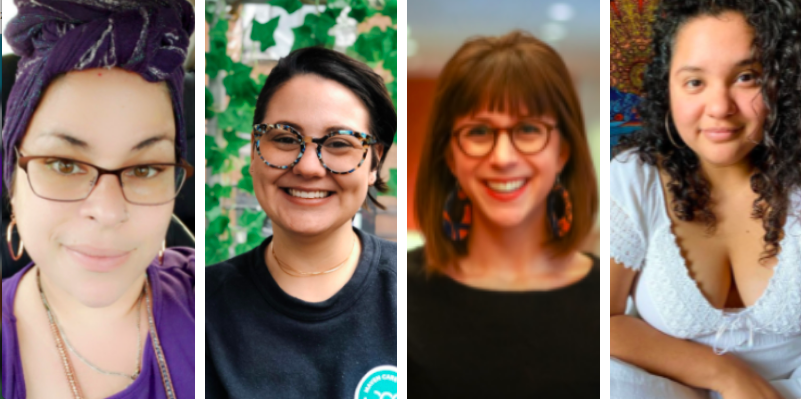
What Do You Think?